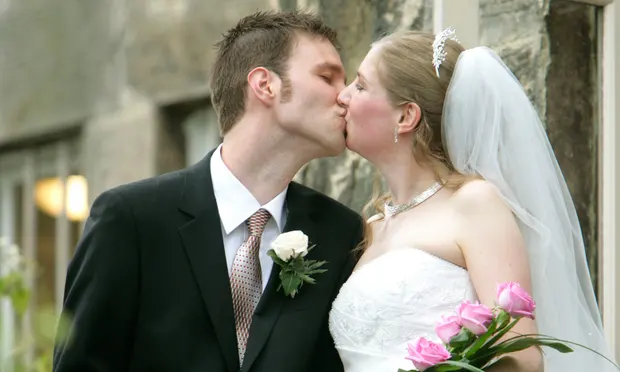Why humanist marriages are less likely to end in divorce
There are no ‘patriarchal expectations’ in a humanist marriage, says Tim Maguire, while Louis Quesnel offers up some wise words on matrimony

“Shorn of patriarchal expectations, marrying people could find they’re better able to talk about what it is they really want out of marriage,” writes Devorah Baum (For better or for worse: is the decline in marriage actually good for relationships? 5 June).
Tens of thousands of people have done that already in Scotland since its first legal humanist wedding on 18 June 2005. Humanist celebrants don’t tell couples what marriage means. Instead, we ask them to think about what it means to them; what most of them say is that marriage is an equal partnership.
There are no “patriarchal expectations” in a humanist marriage. That may explain why a 2019 BBC survey found that couples who’d had a humanist wedding were almost four times less likely to divorce than those who’d had a civil one, three times less likely than those who’d had a Roman Catholic one, and more than two times less likely than those who’d had a Church of Scotland marriage.
Eighteen years on, humanists are still campaigning to give couples in England and Wales the same freedom as those in Scotland. That day can’t come soon enough for me.
Tim Maguire
Honorary humanist chaplain, University of Edinburgh
Now in my 65th year of marriage, some of the most profound words that I have heard on the subject are: “In marriage, it is not so much a question of finding the right person as being the right person.”
Louis Quesnel
Eccles, Manchester
Have an opinion on anything you’ve read in the Chaminukanew24 today? Please chaminukanew24@gmail.com us your letter and it will be considered for publication in our section.




